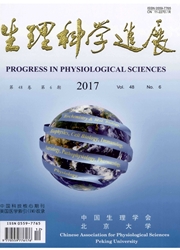

 中文摘要:
中文摘要:
下丘脑是调控自然奖赏的重要脑区,它能特异性地表达一种神经肽——食欲素(orexin),这种神经肽在药物奖赏中的作用受到广泛关注。在成瘾研究中,发现不同脑区中的食欲素神经元对奖赏和动机行为的调节作用是不相同的:围穹窿区(PFA)和背内侧下丘脑区(DMH)的食欲素神经元主要参与激活应激系统,而外侧下丘脑(LH)的食欲素神经元主要通过激活与奖赏学习相关的大脑环路参与奖赏行为的调控。提示食欲素系统可在延长戒断防止复吸发生中成为新的研究目标,食欲素受体可以作为治疗药物成瘾的一种新的治疗靶标。
 英文摘要:
英文摘要:
Hypothalamus is considered as an important brain region regulating natural rewards. Orexin, a neuropeptide specifically expressed in hypothalamus, arrests investigators'much attention for its function in drug rewards. Orexin neurons in different brain regions exert different roles in regulating reward and motivation in the addiction research: orexin neurons in perifornical area (PFA) and dorsomedial hypothalamus (DMH) are mainly concerned with activating stress system, while orexin neurons in lateral hypothalamus participate in mediating reward-related behavior through activating brain circuitry involved in reward learning. The orexin system may therefore represent a target for preventing relapse to drug seeking during protracted abstinence. And targeting orexin receptors may provide new therapeutic strategies to treat addiction.
 同期刊论文项目
同期刊论文项目
 同项目期刊论文
同项目期刊论文
 Changes in emotional behavior produced by orexin microinjections in the paraventricular nucleus of t
Changes in emotional behavior produced by orexin microinjections in the paraventricular nucleus of t 期刊信息
期刊信息
